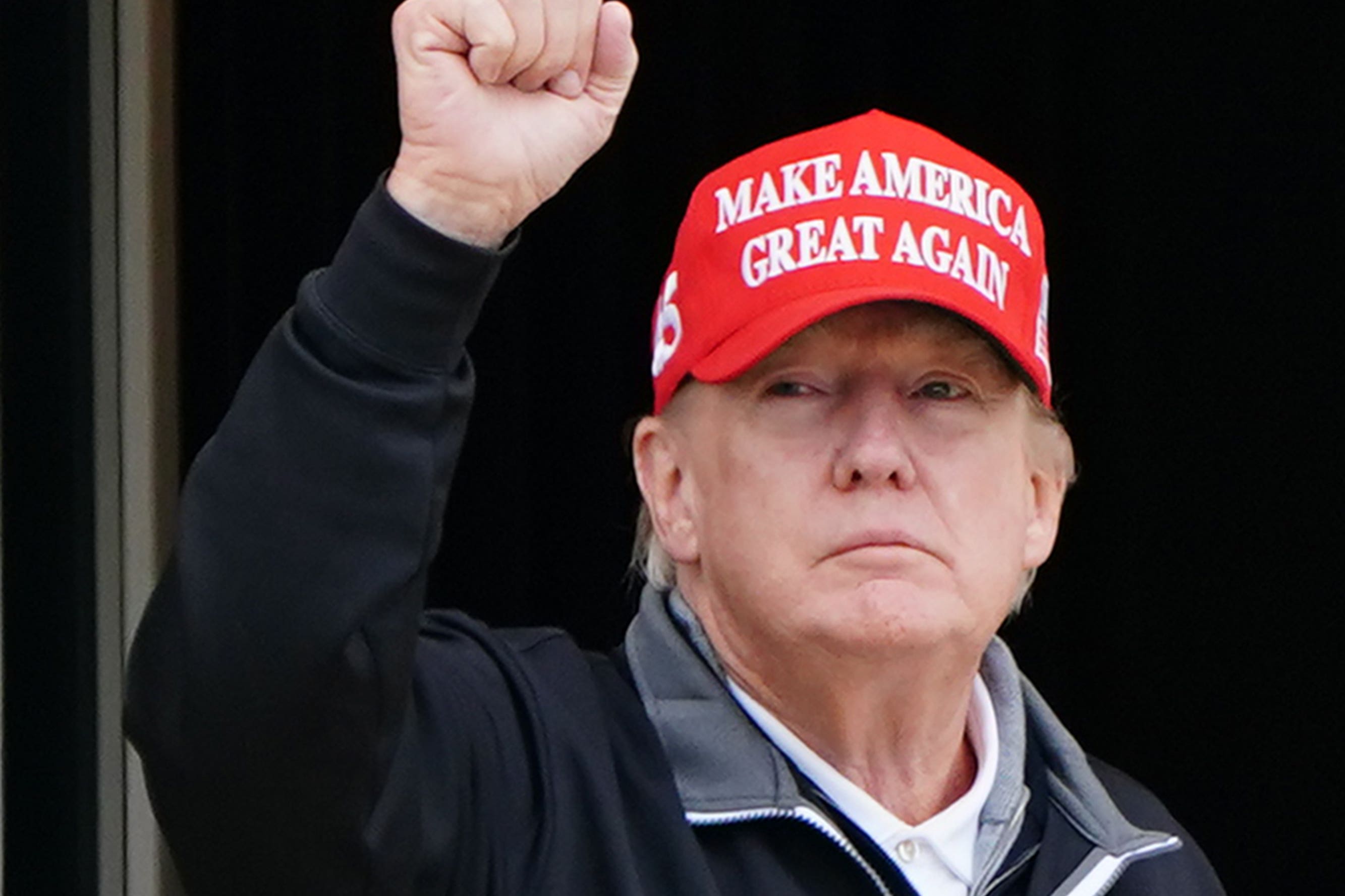Conservative judge urges Supreme Court to toss Trump from ballot
‘Mr Trump disqualified himself under section 3 (of the Constitution),’ former conservative federal appellate judge J Michael Luttig wrote
Your support helps us to tell the story
From reproductive rights to climate change to Big Tech, The Independent is on the ground when the story is developing. Whether it's investigating the financials of Elon Musk's pro-Trump PAC or producing our latest documentary, 'The A Word', which shines a light on the American women fighting for reproductive rights, we know how important it is to parse out the facts from the messaging.
At such a critical moment in US history, we need reporters on the ground. Your donation allows us to keep sending journalists to speak to both sides of the story.
The Independent is trusted by Americans across the entire political spectrum. And unlike many other quality news outlets, we choose not to lock Americans out of our reporting and analysis with paywalls. We believe quality journalism should be available to everyone, paid for by those who can afford it.
Your support makes all the difference.A high-profile retired conservative judge has urged the Supreme Court to toss Donald Trump from the ballot amid challenges to his eligibility to run in the 2024 election.
Former federal appellate judge J Michael Luttig accused Mr Trump of engaging in an insurrection following his loss in the 2020 election and argued he should be prevented from holding office.
“Trump incited, and therefore engaged in, an armed insurrection against the constitution’s express and foundational mandates that require the peaceful transfer of executive power to a newly-elected president,” Mr Luttig told the justices in a friend-of-the-court brief filed on Monday.
“In doing so, Mr Trump disqualified himself under section 3 (of the constitution),” he added.
Section 3 of the 14th amendment of the constitution prohibits anyone who “engaged in insurrection or rebellion” from holding public office.
The US Supreme Court has never ruled on section 3 of the 14th amendment, which was adopted in 1868 to prevent confederates from regaining their former government posts after they argued for a breakaway republic, but some Trump supporters have argued the clause is no longer relevant today.
Mr Luttig dismissed this argument in his court brief, arguing that Mr Trump’s efforts to remain in power were more serious than South Carolina’s secession from the union, which led to the Civil War between 1861 and 1865.

“Mr Trump tried to prevent the newly-elected President Biden from governing anywhere in the United States. The South Carolina secession prevented the newly-elected President Lincoln from governing only in that State,” Mr Luttig wrote.
“The threat or use of armed force to prevent a newly-elected President from exercising executive power, whether on December 20, 1860 or January 6, 2021, is an insurrection against the Constitution,” he added.
It is not the first time Mr Luttig has argued the former president incited an insurrection. The former judge played a critical role in the heated fight over the certification of the 2020 presidential election, providing legal arguments to help then-vice president Mike Pence defy Mr Trump’s attempt to overturn the election.
His most recent legal argument came after the Supreme Court in Colorado ruled that the former president is ineligible to run in 2024 because the 14th amendment’s ban on insurrectionists holding office covers his conduct on 6 January, 2021.
Shenna Bellows, Maine’s secretary of state, quickly followed by disqualifying Mr Trump from the ballot for similar reasons. Maine’s Superior Court declined to issue a ruling, awaiting the US Supreme Court’s decision.
Other states have refused to rule on the challenge or declined to remove the former president. Just this week, Illinois’s Board of Elections allowed Mr Trump to remain on the presidential primary ballot, saying they did not believe they had the authority to determine Mr Trump’s eligibility.

The case will now be argued in the US Supreme Court, which is set to decide if the former president has “presidential immunity” from charges connected to his attempts to subvert the outcome of the 2020 presidential election, and therefore cannot be struck from the ballot in Colorado.
Mr Trump has argued as such, but opponents have argued that the former president is attempting to use the constitution as a “get out of jail free card”.
“Trump goes on to argue that even if he did incite the insurrection, well, the constitution doesn’t apply to him. I don’t think that’s right,” Jena Griswold, whose agency runs elections in the state of Colorado, told MSNBC’s The Last Word earlier this month.
Mr Trump has also attempted to wriggle his way out of the charges by arguing that the 14th amendment can only be enforced by Congress after a candidate is elected to office.
In Monday’s brief, Mr Luttig pushed back on this argument, saying that enforcement of the provision is instead within the purview of courts.
Mr Trump’s argument, the brief said, “would deprive voters of the ability to make a truly informed decision, because they could not know if they were voting for someone who cannot serve”.
It continued: “And it would risk chaos as courts litigate whether a newly-inaugurated president is disqualified at the same time the country needs a president to be indisputably occupying the office and making enormously consequential decisions – including as commander-in-chief, appointer of cabinet members, leader of the executive branch, vetoer of bills, etc.”
The brief, which was submitted on behalf of several other notable lawyers, including George Conway, ex-husband of former Trump adviser Kellyanne Conway, also argued that the Supreme Court should examine the issue through a textualist lens, in an appeal to Conservative members of the bench.
“Because section 3 emerged from the hallowed ground of the Civil War, this Court must accord section 3 its fair meaning, not a narrow construction,” the brief said.

Join our commenting forum
Join thought-provoking conversations, follow other Independent readers and see their replies
Comments